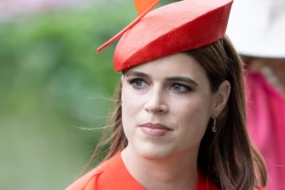
A new assessment by the Gallery Climate Coalition (GCC), a membership organisation that helps the art world become more sustainable, has found that four fifths of its members that began tracking their carbon output in 2019 have reduced it by more than 25%. This puts them on course to halve their emissions by 2030.
GCC now has more than 2,000 members, including art institutions and artists, in more than 60 countries.
The decarbonisation findings, published in the GCC’s first Stocktake Report, was launched to coincide with London Art+Climate Week—a new five-day event running parallel to the UN climate summit COP30 in Brazil. They suggest that the global art sector could collectively cut over five million tonnes of CO₂ a year, the equivalent of countries such as Nicaragua, Albania and Mauritius.
Frances Morris, the former director of the Tate Modern and the chair of the GCC, tells The Art Newspaper: “The next five years will define the art sector’s legacy in the climate transition. GCC invites all coalition members, partners, and allies to join us in this next phase—shaping a future where creativity and climate action move hand in hand, transforming not only our own industry but the wider world it reflects and influences.”
Morris says that the devastation caused by Hurricane Melissa in Jamaica and typhoons in the Philippines underlined the need to accelerate action. She added: “Progress is possible, the GCC Stocktake Report proves it. Across hundreds of organisations, the data shows that when the visual arts sector measures, plans and acts, emissions fall. But carbon is only part of the story. The roots of this crisis lie in broader economic, social, and cultural systems that normalise overconsumption and disconnection. Tackling them demands not only technical solutions but cultural transformation, and art has a unique and critical role to play in that shift.”
Elsewhere, artists were among more than 200 creatives, writers, scientists and public figures to sign an open letter urging world leaders to put storytelling and the creative arts at the heart of global climate action. The letter, released as nations gather at COP30 in the Brazilian city of Belém, argues that 30 years of climate negotiations have failed partly due to a “failure of imagination”.
Signatories including artists Jackie Morris, Timothy Collins and Anoma Wijewardene, who say the arts must be fully involved in future COPs to communicate climate risks and inspire societal change.
The letter’s lead author, John Holmes, the president of the global commission on science and literature at the University of Birmingham says: “If governments around the world, including our own in the UK, are serious about meeting net zero targets and averting disaster, they need to address this failure by working more closely with the creative industries.”









